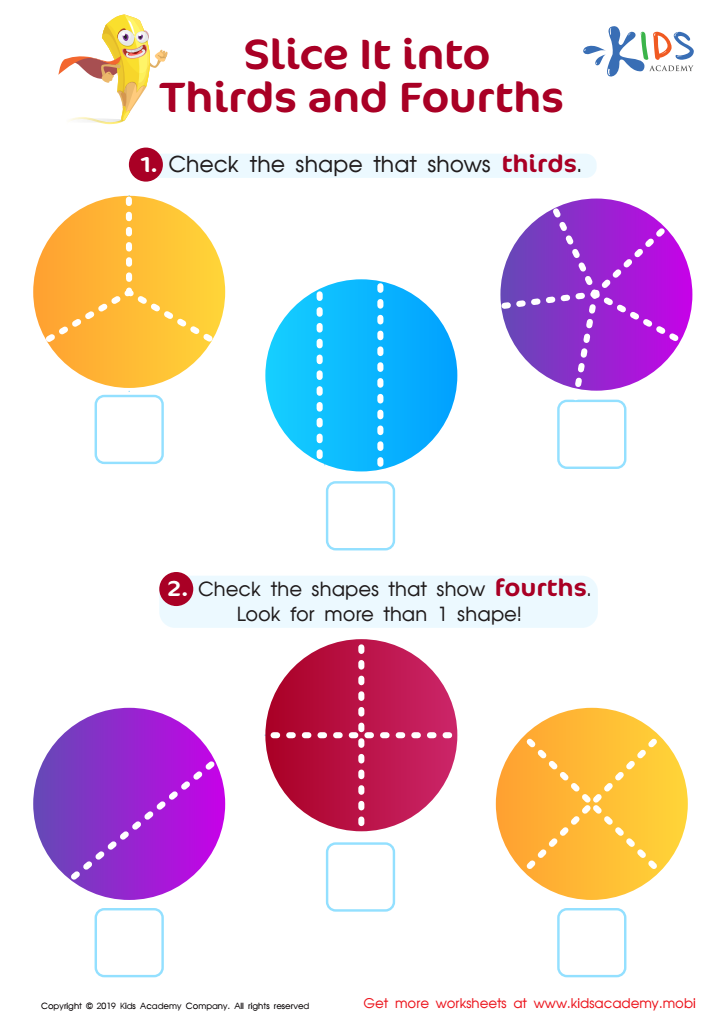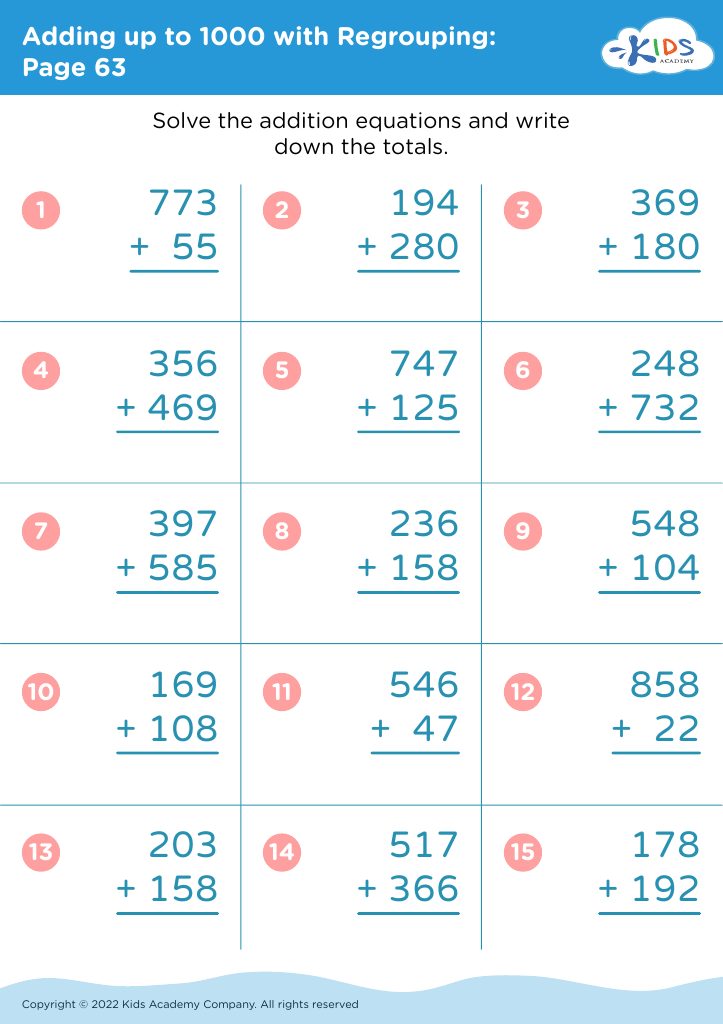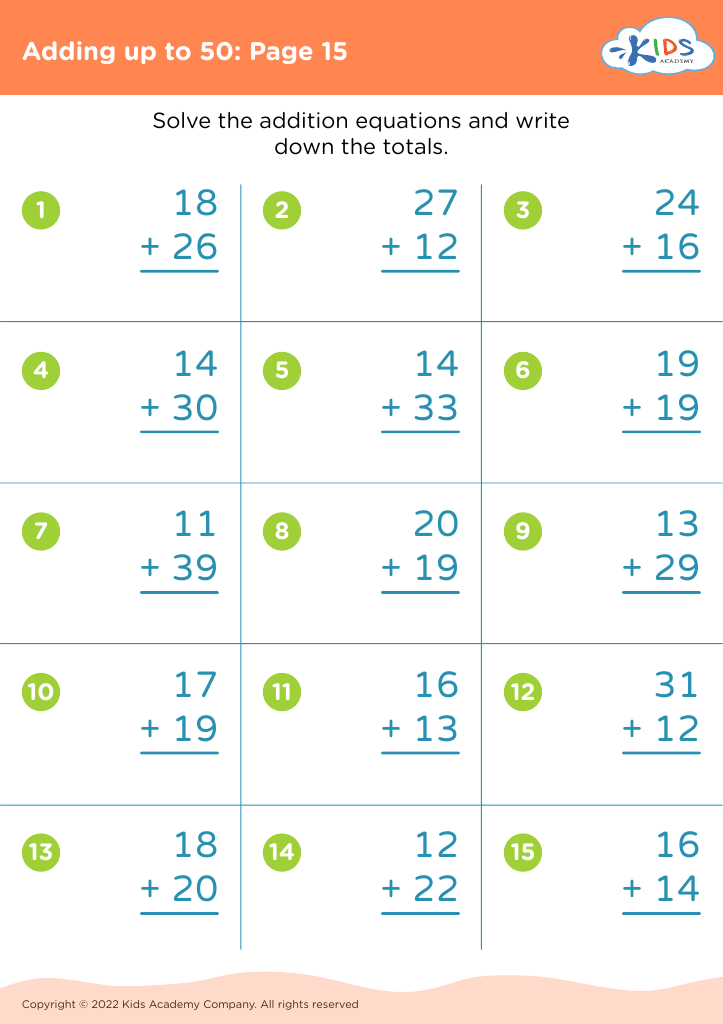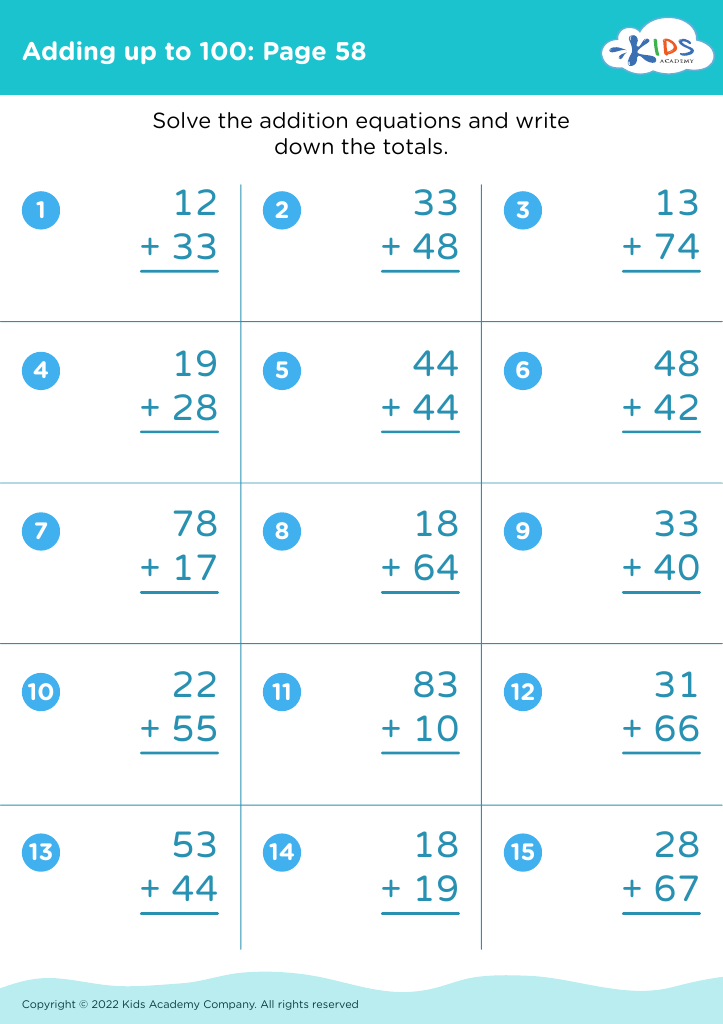Fraction identification Math Worksheets for Ages 4-7
6 filtered results
-
From - To
Explore our engaging Fraction Identification Math Worksheets tailored specifically for ages 4-7! Designed to make learning fun, these worksheets help young learners grasp the foundational concepts of fractions through interactive and visually captivating exercises. Kids will enjoy identifying fractions in various forms such as pictures, shapes, and real-life examples, reinforcing their understanding of parts and wholes. With a variety of exercises that cater to different learning styles, these worksheets encourage critical thinking and problem-solving skills. Foster a love for math early on with our beautifully crafted resources, perfect for home or classroom learning, and witness a seamless progression in your child's math confidence!


Slice in Thirds Fourths Worksheet
Understanding fraction identification is crucial for children aged 4-7, as it lays the foundation for their future mathematical abilities. At this stage, engaging with fractions helps children develop critical thinking skills and enhances their grasp of part-whole relationships. When parents and teachers prioritize fraction education, they encourage children to recognize that numbers can represent parts of a whole, a fundamental concept in math.
Moreover, early exposure to fractions promotes spatial awareness and improves problem-solving skills. Activities such as cutting shapes, sharing snacks, or measuring ingredients can provide practical, hands-on experiences that foster a positive attitude toward learning math. These experiences make abstract concepts more tangible and relatable.
Teaching fractions at an early age also prepares students for more advanced topics, such as decimals and percentages, as they progress in their education. By cultivating fraction skills, parents and teachers equip children with the tools they need for academic success, leading to greater confidence in their mathematical abilities.
Ultimately, fostering an understanding of fractions can ignite a lifelong interest in mathematics, making it a vital focus for parents and educators. Emphasizing this skill can significantly contribute to children's cognitive development and enthusiasm for learning.



 Assign to My Students
Assign to My Students





.jpg)











